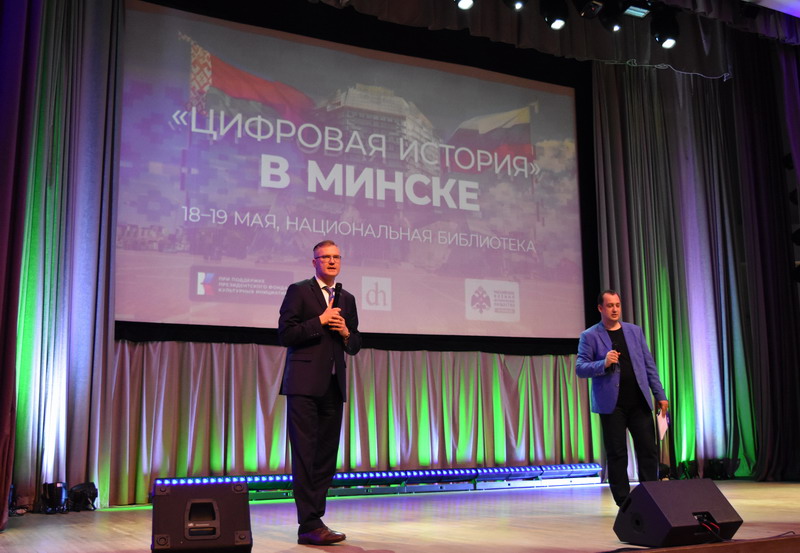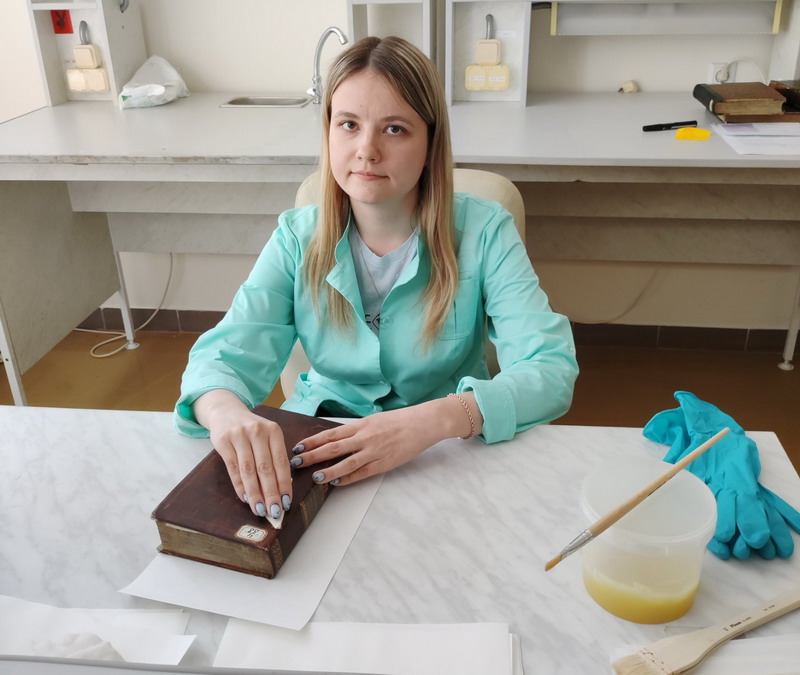A new project of the National Library of Belarus is dedicated to the Great Patriotic War – "Reading newspaper lines with your heart. On the 80th anniversary of the liberation of Belarus from the Nazi invaders."
Every week from January to August 2024, the portal of the National Library publishes materials from newspapers of Soviet Belarus in 1944, reflecting the chronicle of news and events of that time.
April 1st. "The raid (2,100 km) of the partisan formations of the village of Vershigory through Rivne, Volyn, Lviv, Brest, Pinsk regions, Lublin Voivodeship of Poland has ended.
" [1418 days of the Great Patriotic War ..., p. 303]
Pyotr Petrovich Vershigora (1905 –1963) was a legendary partisan commander, an active participant in the Soviet partisan movement during the Great Patriotic War, Major General, Hero of the Soviet Union (August 7, 1944); photographer, author of books about the partisan movement, his combat path.
During the raid, 139 battles were fought with the Nazi invaders, great damage was inflicted on the enemy in manpower and equipment (12 echelons were derailed, 2 aircraft were destroyed, etc.), about 10,000 Soviet citizens who were being hijacked to Germany were released.
Andrei T., secretary of the NSK underground district Committee of the LKSM of Belarus, told about the rescue of 7 thousand girls and boys from export to Germany in a large article "Komsomol members in the enemy rear" [Savetskaya Belarus, No. 55, p. 2]. It was one of the examples of youth working underground. As the author noted, it was the Komsomol-youth groups who were entrusted with sabotage operations on the railway.
It is believed that several hundred thousand people were forcibly removed from the territory of Belarus to work in Germany. They were able to return to their homeland after the Victory.The partisan detachments of the EXILE continued their painstaking systematic work to expel the enemy from their land: they blew up echelons, destroyed detachments and garrisons.
The newspaper Savetskaya Belarus [No. 56, p. 3] published a large article about Ozarichsky and other recently liberated death camps, written by Ya. Kolas, E. Sadovsky, V. Burnosov. It contains several stories from prisoners of these camps, who told about the torments of people suffering from hunger, thirst, cold in the open air, trying to escape, they died from the explosion of mines. The Red Army managed to save more than 33 thousand people.
And in the liberated territory, the collective farms were preparing for sowing and it was necessary to actively deploy the demining of fields. Members of the Osoaviakhim took an active part in this – not only in the search and neutralization of mines, but also in the training of instructors, the organization of volunteer teams of assistants, which included teenagers at least 15 years old [Savetskaya Belarus, No. 56, p. 2].
The country was preparing for the celebration of May 1.
The first of May is a holiday related to the theme of labor and the defense of workers' rights, celebrated under various names in many countries. In the USSR, it was celebrated solemnly. Belarus celebrates Labor Day on May 1.
It was proposed to celebrate this holiday with new successes of the socialist competition of collectives among themselves. The newspaper Za Radzimy [No. 44, p. 2] contains materials on the work of railway workers in the Mogilev region, some of them exceeded the norm by 120–150%, and a machine was designed in one of the brigades to perform one of the processes.
The partisans also joined the general movement "For a decent meeting on May 1", the newspaper Kalgasnik Kapylshchyny [No. 14, p. 1] called for more trains to be derailed, cars, warehouses and bridges to be blown up.
On the front page of the newspaper Savetskaya Belarus [No. 55, p. 1] there is a large article thanking the workers and all residents of Udmurtia for the trains with equipment, tools, and consumer goods that came to Belarus. Echelons for the liberated regions of Belarus were also prepared by other regions: Novosibirsk, Yaroslavl, Ulyanovsk and other regions.
In the echelon from Ulyanovsk – household utensils, shoes, linen, in the echelon from Kirov – equipment for public utilities, building materials [Savetskaya Belarus, No. 55, p. 3].
Novosibirsk region has assembled 80 wagons with equipment for industrial enterprises [Savetskaya Belarus, No. 57, p. 4].
Workers from Yaroslavl and Kostroma responded, collected various tools, spare parts for agricultural machines and other equipment, with furniture, etc. [Savetskaya Belarus, No. 59, p. 2].
Many regions of the USSR helped to complete libraries in the liberated regions of Belarus. A large batch of books arrived from the Chuvash ASSR and other regions, in the Polesie region it was sent to regional libraries [Savetskaya Belarus, No. 55, p. 4].
Books, newspapers, magazines were in high demand, they were bought up very quickly [Savetskaya Belarus, No. 59, p. 4].
Enterprises were being restored every day in the liberated areas: in Mozyr – a workshop for the production of furniture [Savetskaya Belarus, No. 55, p. 4]; in Kostyukovichi, Mogilev region – a sawmill, a mill, a locksmith workshop and others [Savetskaya Belarus, No. 56, p. 3]. A blood transfusion station has been opened in Gomel [Savetskaya Belarus, No. 55, p. 4]. 350 poultry farms were going to be opened in the Polessky region [Savetskaya Belarus, No. 56, p. 3].
Provision of urban residents – workers and employees of enterprises – with plots for vegetable gardens continued [Savetskaya Belarus, No. 55, p. 4]:

A regional library has been opened in Khoiniki, its collection includes 4,000 volumes of literature on art, political and other literature [Savetskaya Belarus, No. 56, p. 3].
The state cultural institution "Khoinik Central District Library" was organized in 1921 in the People's House of Culture, during the Great Patriotic War it was looted by the occupiers, the club was burned down. After the liberation of the city in 1943 from the Nazi invaders, the library resumed its work.Yakub Kolas, the famous Belarusian writer and poet, visited Mozyr, and visited the library [Savetskaya Belarus, No. 57, p. 4]. The article said that library readers, hoping for liberation, hid about 4,000 volumes of literature from the invaders, including works by Yakub Kolas, Yanka Kupala, Mikhail Lynkov. Yakub Kolas thanked the Komsomol members for their love of the book and for restoring the library.
The famous composer M. Blunter, the author of famous and beloved songs – "Katyusha" (1938), "Wait for Me" (1942), "How a Soldier served" (1944) – met with the fighters of the Belarusian Front [Savetskaya Belarus, No. 59, p. 4].
Several events in the scientific life of Belarus have been announced in the newspapers this week.
A scientific conference of the Belarusian State Medical Institute is planned in Yaroslavl [Savetskaya Belarus, No. 55, p. 4]:
A lecture by academician I. P. Trainin on the topical topic of Hitler's military robbery and the laws of war was planned in Gomel [Savetskaya Belarus, No. 55, p. 4].
At the Academy of Sciences of the BSSR, research continued in various directions: a map of the continents of the globe was compiled, the Institute of Socialist Agriculture investigated the most appropriate ways to restore economic management in the liberated territories of Belarus [Savetskaya Belarus, No. 56, p. 4]; the Peat Institute developed scientific topics relevant to the restoration of the national economy of the BSSR – processing peat, production of coke and motor fuel, production of lubricants, mechanization of peat extraction and others [Savetskaya Belarus, No. 57, p. 4]; A lot of painstaking work was carried out to study the works of Yanka Kupala and Yakub Kolas [Savetskaya Belarus, No. 58, p. 4].
It is impossible to read lines about the library of the Academy of Sciences without excitement: "The Germans destroyed a wonderful academic library in Minsk. The selection of books for the restoration of the Academy's library is currently underway. The first 50,000 volumes were purchased" [Savetskaya Belarus, No. 58, p. 4].
On the radio station "Savetskaya Belarus", the masters of arts of Russia, leading actors and musicians transmitted their concert "Greetings to the Belarusian people" [Savetskaya Belarus, No. 57, p. 4]..
There are 21 weeks left before the liberation…
The material was prepared by L. G. Tupchienko-Kadyrova,
Candidate of Historical Sciences, chief bibliographer
of the information and analytical department.
Sources
Newspapers*
The full news papers issues are available on links.
- За Радзіму : орган Магілёўскага абласнога і гарадскога КП Беларусі і абласнога і гарадскога Савета дэпутатаў працоўных, 1944, № 44.
- Калгаснік Капыльшчыны : орган Капыльскага райкома КП Беларусі і раённага Савета дэпутатаў працоўных, 1944, № 14.
- Савецкая Беларусь : орган ЦК КП(б) Беларусі, Саўнаркома і Прэзідыума Вярхоўнага Савета БССР, 1944, № 55.
- Савецкая Беларусь, 1944, № 56.
- Савецкая Беларусь, 1944, № 57.
- Савецкая Беларусь, 1944, № 58.
- Савецкая Беларусь, 1944, № 59.
- Сталінец : орган Грэскага райкома КП Беларусі і раённага Савета дэпутатаў працоўных, 1944, № 19.
- Сталінец, 1944, № 20.
*The titles of the newspapers are given accordance to modern spelling.
Book, articles, posters
- Беларуская літаратура XIX стагоддзя / Акадэмія навук БССР, Інстытут мовы, літаратуры і мастацтва ; склалі: В.В. Барысенка, М.Г. Ларчанка і Л.І. Фіглоўская ; пад рэдакцыяй Ю.С. Пшыркова. – Мінск : Выдавецтва Акадэміі навук БССР, 1950. – 339 с. – З фонду НББ.
- Беларуская савецкая літаратура : падручнік для 9–10-х класаў сярэдняй школы / Інстытут літаратуры, мовы і мастацтва Акадэміі навук БССР ; [У.І. Агіевіч і інш.] ; пад рэдакцыяй В.В. Барысенкі і М.Ц. Лынькова. – Мінск : Дзяржаўнае выдавецтва БССР, Рэдакцыя вучэбна-педагагічнай літаратуры, 1949. – 375, [1] с. – З фонду НББ.
- Война и рабочий класс : журнал. – 1943–1945. – Москва : Труд, 1943–1945.
- 2 раза в месяц. – З 1945, № 1 (11) выходзіць пад загалоўкам: Новое время. – З фонду НББ.
- Вялов, К.А. Дадим фронту больше танков [Изоматериал] : Изо дня в день будем усиливать нашу помощь фронту! : Враг будет разбит. Победа будет за нами! : [плакат] / художник К. Вялов. – Москва ; Ленинград : Искусство, 1942 (Москва : Литография “Труд и творчество”). – 1 л. – З фонду НББ.
- 1418 дней Великой Отечественной войны : хронология событий : хронология событий : [солдату Великой Отечественной посвящается / сост. Е. В. Малашевич ; науч. ред.: Е. И. Барановский, Г. И. Баркун ; фото: В. В. Харченко]. – Минск : Мастац. літ., 2014. – 421, [1] с.













